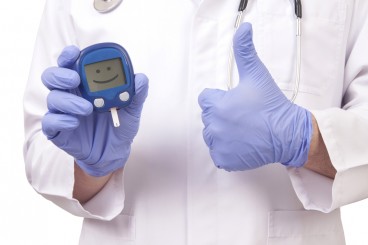
STEP 4
SLEEP TIGHT.
That after-dinner walk may have a secondary benefit in setting you up for a good night’s sleep. Getting between seven and nine hours each night appears to play a role in improving “insulin sensitivity” or helping the body clear sugar from the bloodstream, says Peter Liu, M.D., a lead researcher at Los Angeles Biomedical Research Institute. “The data suggest that the proper amount of sleep is as good for your metabolic health as diet and exercise,” says Liu. “We should all value our sleep, and plan to get enough every night.”
What if your job or worries keep you up some of the time? Liu was recently a lead researcher on a study that found getting “catch-up sleep” on the weekend also improves insulin sensitivity. The researchers worked with men who typically were getting on average 6.2 hours of sleep during the work week. On weekends, the participants were encouraged to sleep longer, and sure enough, they were able to get 2.3 additional hours per night on weekends. When the results were in, these stressed-out workers were also able to improve their insulin sensitivity.
For Shelley Kubaney’s part, she is now eating well seven days a week, walking a mile or more after dinner, and getting a healthy amount of sleep. That, combined with a low dose of medication, has allowed her to maintain good blood sugar levels since her diagnosis. She is energetic; she no longer has problems driving at night; and she dropped 20 pounds. Her goal is to manage her diabetes with only these steps—and to establish healthy habits in her children, Elizabeth, 16, and Andrew, 13.
“My whole perspective has changed,” she says. “Once we stopped eating all the carbs and sugar, we found that we lost the craving for it. I’m committed to educating my kids so they don’t head down the same path that I did.”
See how researchers may have discovered a new way to detect and monitor type 2 diabetes—without needles!
Become a Saturday Evening Post member and enjoy unlimited access. Subscribe now



